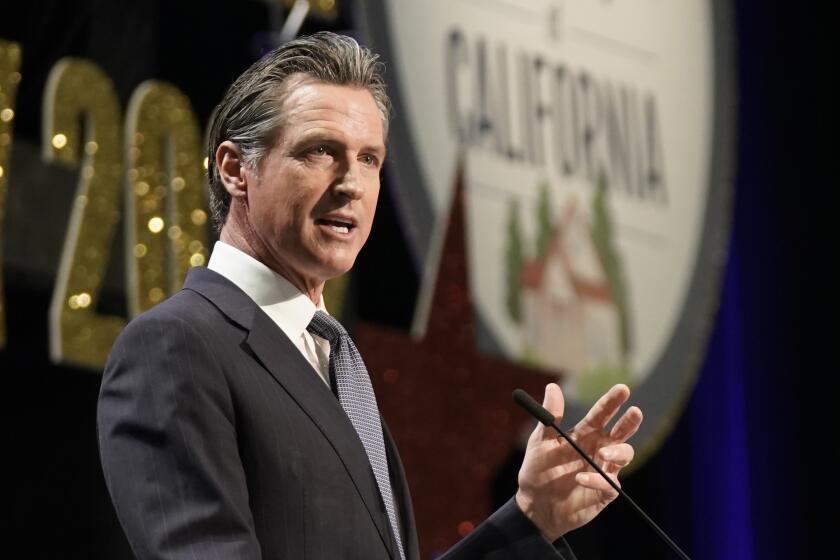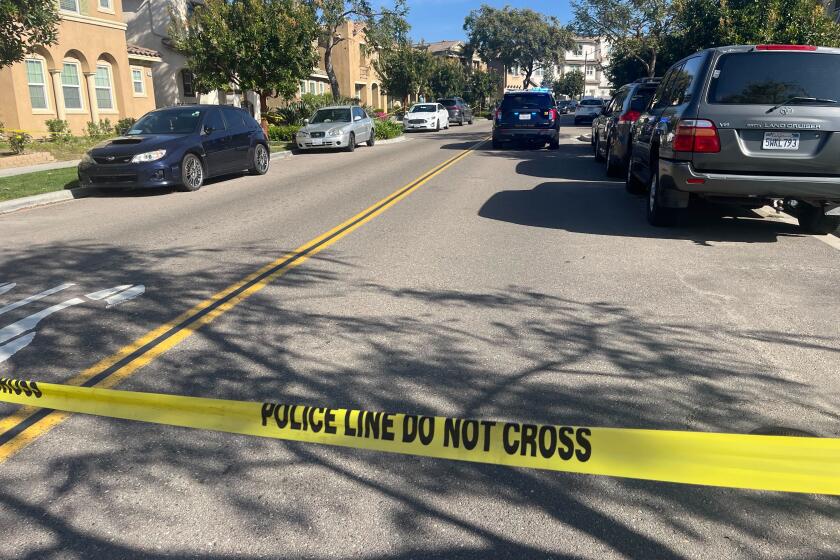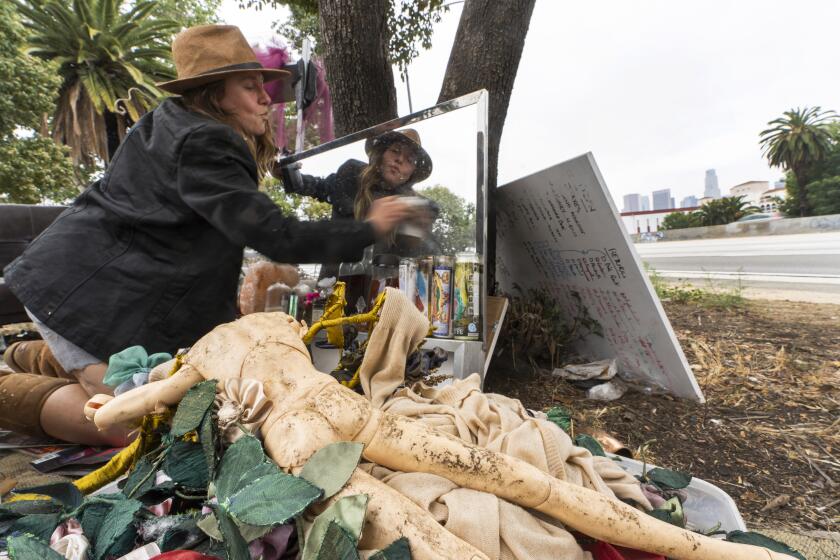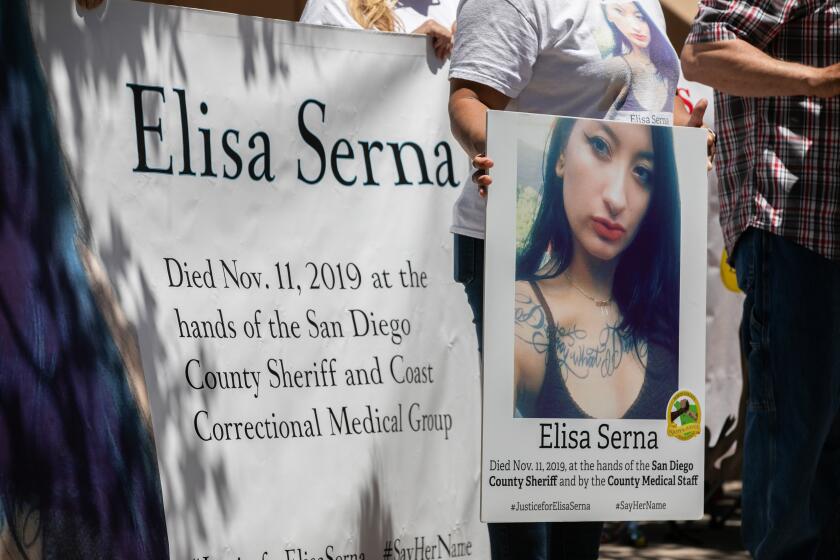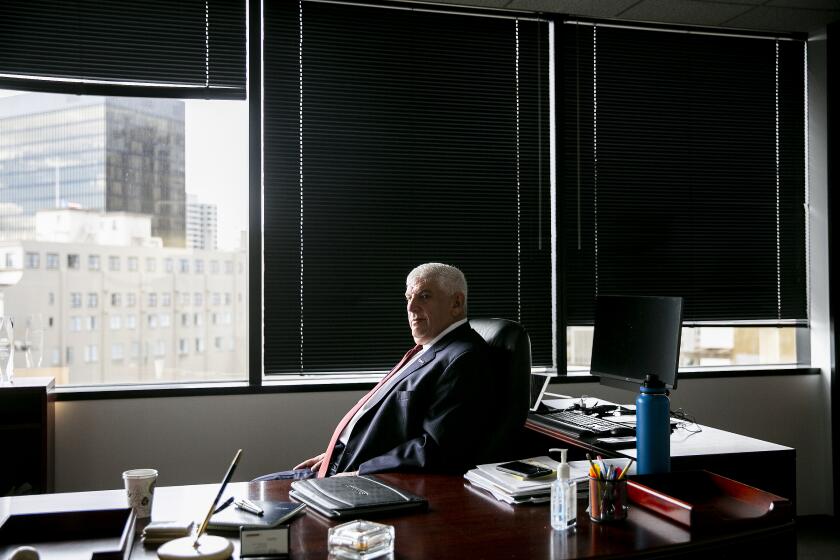An inside look at the selling of the White House’s foreign policy
Ben Rhodes, the White House’s deputy national security advisor for strategic communications, and Terry Szuplat, senior director for speechwriting, played important roles in helping make the case for President Obama’s historic and often-controversial foreign-policy decisions. Chris Reed, the Union-Tribune’s deputy editorial and opinion editor, recently had telephone interviews with Rhodes and Szuplat in which they looked back on their work for the president. The following is a condensed and edited account of the conversations.
Reed: How has political messaging changed since 2009?
Rhodes: In 2009, you could still presume that the most important audience for a speech was the media that would then explain that speech to a broader public. But over the last eight years, the information environment has splintered so much that in addition to work through traditional media, you have to find other ways to try to draw attention to what the president’s saying or what we are doing. And so that means making much greater use of social media going to nontraditional media outlets and doing everything you can to make sure that your message reaches the intended audience in a way that gets across your point without it being totally chopped up by the kind of partisan machinery.
Related: When ordinary people are highlighted in a presidential speech
Reed: The 2011 New Yorker article in which the president was described as “leading from behind” has been used against him ever since.
Rhodes: Bear in mind that he never said that. It was one of the strange cases that happens in Washington where that was a quote from an unnamed official. And to this day I have no idea who it was. It wasn’t me. It became a kind of bumper sticker for criticism. President Obama would not have selected that phrase in part because it’s impossible for the United States to lead from behind. We have such unique capabilities in terms of our military and the size of our economy. Now, what is true is we have said prefer not to do things alone and we want other countries to do their share and we want to be acting as part of a coalition. [But] the reality is simply that the United States is too powerful and too essential to mobilizing international action to do anything other than lead from the front.
Szuplat: He came in with a very clear sense that the U.S. involvement in Iraq and Afghanistan, while important, had led to sort of an imbalance in U.S. foreign policy where we were extremely heavily weighted in two countries and often not giving the rest of the world, the rest of humanity, the attention and focus that it deserved and that our national security served. And so one of the core objectives of his foreign policy has been to make sure we’re using our foreign policy, particularly our military, wisely and not allowing ourselves to get drawn into unnecessary conflicts. And so the approach that he’s taken in Syria has flowed from that.
Reed: Bard College professor Walter Russell Mead questions whether future presidents will have foreign policies like Obama’s and wonders if that’s a commentary on Obama.
Szuplat: If a core tenet of the Obama foreign policy has been to avoid the classic overreach that has sapped so many countries of their power over the course of history, then I can’t image that that’s a lesson that future presidents won’t remember.
Rhodes: I don’t think that’s going to be the case because I think our policy has been characterized by a desire to, again, work with other countries, to build coalitions, to avoid costly military conflicts. And ultimately that is the only sustainable approach in this very complicated world. We use force in instances like the bin Laden operation or to take out terrorist targets, but we resolved the Iranian nuclear issue diplomatically; we brokered a global agreement to combat climate change. These issues are so global now that if you don’t have that type of coalition building, you can’t solve a problem. You cannot stop the next Ebola from happening unless you’re working with many different countries because diseases recognize no borders.
Reed: The theory about using “soft power” [America’s economic and cultural influence] to advance our interests arguably isn’t as strong in an era of fake news and the different ways media are used to advance views.
Rhodes: I think you’re right that the new environment that we’re in presents new challenges to soft power — an environment where you have fake news, people kind of making up their own facts, people using cyber as a weapon. But soft power is still part of what distinguishes America. Other publics around the world don’t look to China or Russia in the same way that they look to an America. The reason why is because we stand for a set of values that are universal, so people can see themselves in our democracy even if they’re not American. The other thing about soft power is that the dividends pay out over a longer term. If someone comes here on an exchange program, and that person five years from now, 10 years from now, 15 years from now could become a prime minister or a foreign minister or a business leader or an entrepreneur. And their views of America will have been shaped in part by their interaction with our soft power.
Szuplat: I think soft power is actually more important than ever. Ben and I have been lucky enough to travel around with the president all over the world. We have seen him interact with audiences, especially these town hall audiences around the world, which if you’ve ever seen them are often hundreds of young people in places like Kenya, Laos, Vietnam. He is one of the world leaders who can do that — stand up in front of a group of young people in every corner of the world and speak to the common values that unite us across borders. Every single one of these town halls and the speeches that he gives around the world are broadcasted and seen by millions of people. And there’s no other country, there’s no other leader who does that. In this globalized world, you can’t just make deals with global elites. You have to have buy-in from the people and go to every region in the world. And they are not longing for less liberty and less freedom. They’re longing for more. And the United States is a country that continues to represent that.
Reed: What about Trump’s victory do you think that Democrats do not fully appreciate?
Rhodes: One of the lessons is that to compete politically or to communicate on any issues, you need to recognize that people are getting information from a much more diverse array of sources than just the traditional journalistic platforms that Washington pays attention to. That’s one thing. I think the second thing is, interestingly enough, that you might think about what are the similarities between Donald Trump and President Obama. Barack Obama had a very clear message that people understood in 2008 and 2012 about what his own personal story was, about what he could do for the country, about how he wanted to change things. Therefore people associated him with the changes that they wanted to see in their lives. The message of the president-elect was so different from certainly what most Democrats believe [that] I think there was a lack of appreciation for the fact that it was, to some people, a clear and consistent message. And to compete and win in a national campaign and then to govern successfully you need to have that kind of consistency of message. We’ll see if the president-elect is able to carry that forward. One basic piece of advice to anybody running for national office is you have to be telling one story, not 20 different stories, and it has to be something that is clear and understandable to people.
Reed: I reread The New York Times Magazine article from early 2016 that got you all kinds of heat on the Iran deal. [Rhodes spoke of how he manipulated uninformed, inexperienced reporters into presenting a flattering narrative of the Obama administration and what it achieved.] Do you regret showing the public how the sausage is made?
Rhodes: If you’re in a job like mine, you appear as a personality in thousands of stories. I understand that the way certain things are phrased stirred the pot and caused some controversy. [But] one quote does not fully encapsulate how I might look at, for instance, the entire news media. That said, the broader point were ones that I actually think there’s more agreement on than people publicly acknowledge. Media organizations are shrinking their overseas coverage and, therefore, pushing more of a burden onto their political coverage which has then kind of put a political bent on international issues. That’s commonly discussed around Washington, but maybe it’s just not publicly aired. Whenever you become the story and not the things that you are focused on, you probably could have phrased things differently, but I actually think that the issues around wanting less group think in the foreign policy establishment and wanting to have less of a political frame around the coverage of international events, those are things I think that do merit more discussion. But at the end of the day, when you’re in these jobs, it’s inevitable that every now and then you’re going to be a piñata, and that was my opportunity to be one.
Reed: Years ago, I got to talk to the speechwriter [Peter Robinson] who helped Reagan write the “Mr. Gorbachev, tear down this wall” speech. And he got emotional during the interview because it was clear to him that he had touched history, even if the president had said the words. Has there been a moment like that for you, maybe not on that scale, but that you’re going to look back at always and be particularly proud of?
Szuplat: I grew up in Massachusetts. I was born in Boston. I go home there all the time. I have family there. And so when the Boston bombing occurred, I was the speechwriter who worked with the president closely on his remarks for the memorial service, and then the final remarks the very next night when they caught the perpetrators. And so for me to be able to look back on that and feel that I had a small role to play in helping the country generally, and Massachusetts and Boston specifically, through an incredibly difficult moment is one that I’m going to always remember and be grateful for. The remarks at the service I think reflected the spirit of the city at the moment, and that’s what we always try to do. We try to reflect the moment. And so to the extent that his remarks kind of channeled and reflected some of the pride and the defiance that the city felt at that moment is something that’s always been important to me. When I’m 80 years old, I’ll look back and be grateful that I was able to be part of that moment.
Twitter: @sdutIdeas
Facebook: UTOpinion

